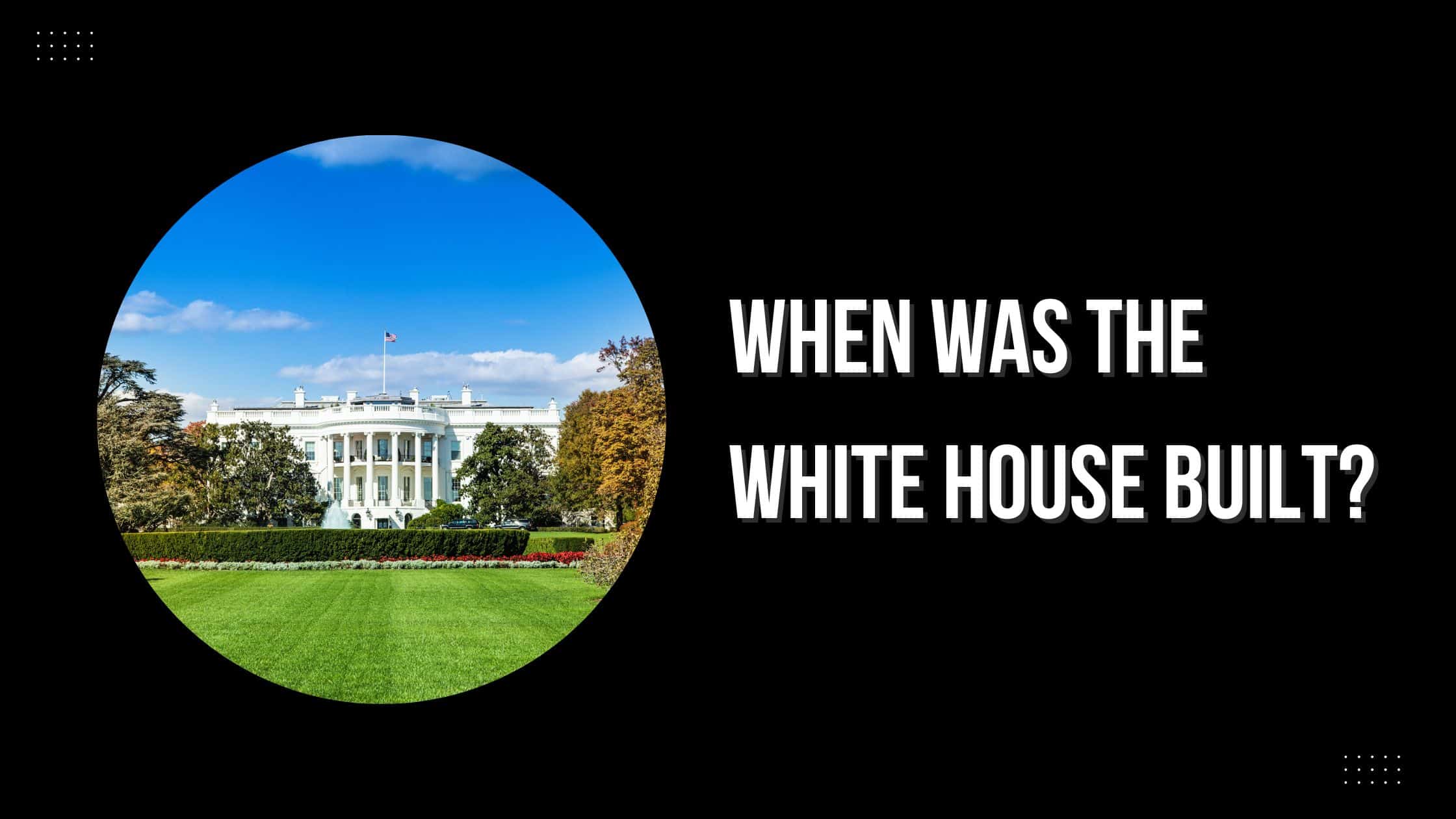White House Constitution: The Backbone Of American Leadership
When we talk about the White House Constitution, we're diving into something bigger than just a document or a building. It's like the foundation of a house that holds everything together. Imagine the White House as the heart of American politics, and the Constitution as the blueprint that keeps everything running smoothly. Together, they form the core of how the United States operates. So, buckle up, because we're about to explore this fascinating relationship between the White House and the Constitution in ways you’ve probably never thought of before.
Now, you might be wondering why this matters. Well, the White House Constitution is more than just a historical artifact or a set of rules. It’s a living, breathing guide that shapes the decisions made every single day by the President and their team. From foreign policy to domestic issues, the Constitution provides the framework for how the White House functions. Think of it like a rulebook for the biggest game in town – and trust me, it’s a game worth understanding.
What makes this topic even more intriguing is how the Constitution evolves over time. It’s not just a static document; it grows and adapts to the needs of modern society. And the White House plays a huge role in interpreting and applying these principles. Whether it’s through landmark Supreme Court cases or executive orders, the Constitution’s influence is felt everywhere. So, let’s dive in and uncover the secrets behind the White House Constitution.
- Design Star David
- What Happens To Will In Stranger Things
- The Necklace Of The Titanic
- Esther Choi Shows
- White Almond Shape Nail Designs
Understanding the White House Constitution
Let’s start by breaking down what the White House Constitution really means. Simply put, it refers to the U.S. Constitution as it applies specifically to the President and the executive branch. This includes everything from the President’s powers to the checks and balances that keep them in check. It’s like a user manual for running the country, and the White House is the command center where it all comes together.
Key Principles of the Constitution
The Constitution lays out the fundamental principles that govern the United States. These include:
- Separation of Powers: Dividing authority among the executive, legislative, and judicial branches to prevent any one branch from becoming too powerful.
- Checks and Balances: A system where each branch can limit the powers of the others to ensure no single entity dominates.
- Federalism: Sharing power between the national government and the states, allowing for a balance between centralized authority and local governance.
These principles are crucial for maintaining a healthy democracy, and the White House plays a central role in upholding them.
- Mikayla Campinos Por
- The Jeffersons Cast Dead Or Alive
- Water Department San Angelo Texas
- Mark Harmon Actor Biography
- Pictures Of Aircraft Crash Victims
White House Role in the Constitution
The White House isn’t just a pretty building; it’s the epicenter of executive power in the United States. As the home of the President, it serves as the hub for implementing the Constitution’s principles in real-world scenarios. From signing bills into law to negotiating treaties, the White House Constitution is at the heart of every decision made by the executive branch.
Executive Powers Under the Constitution
The Constitution grants the President several key powers, including:
- Commander-in-Chief: The President leads the military and makes decisions regarding national defense.
- Veto Power: The ability to reject legislation passed by Congress, ensuring a balance of power.
- Treaty Negotiation: The President can negotiate agreements with foreign nations, subject to Senate approval.
These powers are not unlimited, though. The Constitution also includes mechanisms to ensure that the President doesn’t abuse their authority.
The Evolution of the White House Constitution
Over the years, the relationship between the White House and the Constitution has evolved significantly. What was once a relatively simple framework has grown into a complex system of laws, precedents, and interpretations. This evolution reflects the changing needs of society and the challenges faced by the nation.
Key Amendments and Their Impact
Several amendments to the Constitution have had a profound impact on the White House:
- The 22nd Amendment: Limits the President to two terms, preventing the concentration of power in one individual.
- The 25th Amendment: Establishes procedures for presidential succession and disability, ensuring continuity of leadership.
- The 19th Amendment: Grants women the right to vote, expanding the democratic process and influencing White House policies.
These amendments highlight the adaptability of the Constitution and its ability to address new issues as they arise.
Challenges Facing the White House Constitution
Despite its strengths, the White House Constitution faces numerous challenges in today’s world. From political polarization to technological advancements, the system must constantly adapt to remain effective. These challenges test the resilience of the Constitution and the leadership of those who implement it.
Political Polarization
One of the biggest challenges is political polarization. As the nation becomes more divided, it becomes increasingly difficult for the White House to navigate the complexities of governing. This can lead to gridlock in Congress and make it harder for the President to pass meaningful legislation.
Technological Advancements
Another challenge is the rapid pace of technological change. Issues like cybersecurity, data privacy, and artificial intelligence raise questions about how the Constitution should be applied in a digital age. The White House must work to ensure that the principles of the Constitution remain relevant in this new era.
How the White House Constitution Shapes Policy
The Constitution provides the framework for how policies are developed and implemented at the White House. From healthcare reform to environmental protection, every major initiative must align with constitutional principles. This ensures that policies are not only effective but also legally sound.
Case Studies in Policy Implementation
Let’s look at a few examples of how the White House Constitution has shaped policy:
- Affordable Care Act: This landmark legislation expanded access to healthcare while respecting constitutional limits on federal power.
- Paris Agreement: The White House negotiated this global climate agreement, demonstrating the President’s role in shaping international policy.
- Gun Control Legislation: Efforts to reform gun laws have been shaped by constitutional debates over the Second Amendment.
These examples illustrate the importance of the Constitution in guiding policy decisions at the White House.
Public Perception of the White House Constitution
Public opinion plays a critical role in shaping the relationship between the White House and the Constitution. Citizens’ understanding of constitutional principles influences how they view the President’s actions and policies. This creates a dynamic interplay between the White House, the Constitution, and the American people.
Building Trust and Transparency
To maintain public trust, the White House must prioritize transparency and accountability. This means communicating clearly about how decisions align with constitutional principles and being open to feedback from citizens. By doing so, the White House can strengthen its role as a guardian of the Constitution.
Future of the White House Constitution
As we look to the future, the relationship between the White House and the Constitution will continue to evolve. New challenges and opportunities will arise, requiring innovative solutions and thoughtful leadership. The key will be finding ways to preserve the core principles of the Constitution while adapting to the needs of a changing world.
Preparing for the Future
To prepare for the future, the White House must focus on:
- Strengthening checks and balances to prevent abuse of power.
- Engaging with citizens to ensure their voices are heard in the policymaking process.
- Adapting to technological advancements while protecting constitutional rights.
By taking these steps, the White House can ensure that the Constitution remains a vital force in American governance.
Conclusion: Why the White House Constitution Matters
In conclusion, the White House Constitution is the backbone of American leadership. It provides the framework for how the President and the executive branch operate, ensuring that power is exercised responsibly and fairly. From its key principles to its evolving role in modern society, the Constitution remains a guiding force in shaping the nation’s future.
So, what can you do? First, educate yourself about the Constitution and its role in the White House. Stay informed about current events and how they relate to constitutional principles. And most importantly, engage with the democratic process by voting, participating in discussions, and holding leaders accountable.
Together, we can ensure that the White House Constitution continues to thrive and serve as a beacon of democracy for generations to come. So, share this article, leave a comment, and let’s keep the conversation going!
Table of Contents
- White House Constitution: The Backbone of American Leadership
- Understanding the White House Constitution
- Key Principles of the Constitution
- White House Role in the Constitution
- Executive Powers Under the Constitution
- The Evolution of the White House Constitution
- Key Amendments and Their Impact
- Challenges Facing the White House Constitution
- Political Polarization
- Technological Advancements
- How the White House Constitution Shapes Policy
- Case Studies in Policy Implementation
- Public Perception of the White House Constitution
- Building Trust and Transparency
- Future of the White House Constitution
- Preparing for the Future
- Conclusion: Why the White House Constitution Matters
Article Recommendations
- Who Played Virginia In Happy Gilmore
- Sydney Sweeney Big
- Groups Similar To The Temptations
- The Jackson 5 Film
- Arrowhead Stadium History



Detail Author:
- Name : Gwendolyn Baumbach PhD
- Username : rosetta.turcotte
- Email : hstokes@gmail.com
- Birthdate : 1995-06-29
- Address : 268 Obie Trafficway Apt. 055 Mantefort, SC 37707
- Phone : +1.312.664.3109
- Company : Bartell-Abshire
- Job : Dredge Operator
- Bio : Ut deleniti impedit autem eum sit exercitationem aut. Excepturi provident illum error vel consequatur et repudiandae. Ipsam saepe et minus impedit dolores aspernatur aspernatur.
Socials
instagram:
- url : https://instagram.com/jeromykuhn
- username : jeromykuhn
- bio : Sit libero quae sit expedita provident magni incidunt. Omnis perspiciatis non unde qui enim.
- followers : 387
- following : 1395
twitter:
- url : https://twitter.com/kuhn2007
- username : kuhn2007
- bio : Quis molestiae cum molestiae. Illo qui culpa officiis perspiciatis. Nemo non dolore quod nemo dolor quo.
- followers : 2880
- following : 2459
facebook:
- url : https://facebook.com/jeromy9833
- username : jeromy9833
- bio : Quis voluptatibus minus repudiandae fugit.
- followers : 2703
- following : 1938
tiktok:
- url : https://tiktok.com/@kuhnj
- username : kuhnj
- bio : Exercitationem reiciendis eos sint omnis.
- followers : 1702
- following : 90